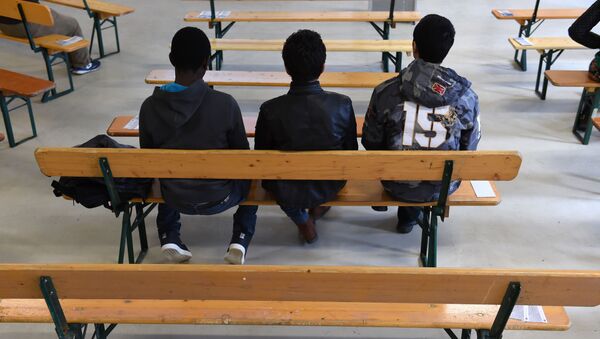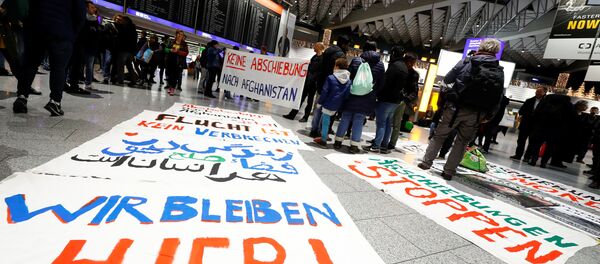Two years on from the height of the refugee crisis, the cost of migrants to the German economy shows no signs of abating, director of the Center of Excellence for Migration and Integration Research (CEMIR) has said.
"We have not managed to improve integration into the labor market," Gabriel Felbermayr told a press briefing in Berlin on Wednesday, the Austrian newspaper Der Standard reported.
"Things are going much slower than hoped," he added.
Last year, Germany's then-Finance Minister Wolfgang Schaeuble budgeted €25.7 billion ($30.3 billion) to pay for migrants in 2016 and €93 billion ($110 billion) up to 2020.
Even if more migrants enter the job market, they would continue to be a burden on the German economy because they generally work in lower-skilled, lesser-paying jobs, as a result of which they make below-average income tax and social security contributions.
However, Felbermayr emphasized that the integration of migrants into society remains a worthy goal which would lessen the burden on taxpayers to some extent: "Not integrating would result in a €20 billion bill every year," he said.

The majority (65%) of migrants are employed in low-skilled occupations such as laborers or in the catering industry, and most do not have the skills to fill shortages in sectors such as healthcare, which requires a high level of German. Just 20% of the migrants who arrived in Germany in 2015 speak German to a good or very good level.
Out of a total 4.4 million recipients of Unemployment Benefit II (Arbeitslosengeld II), a subsistence payment which amounts to €404 ($476) per month for single people or single parents, almost one million are migrants.
At the end of 2016, the German authorities had registered 698,872 recipients of Unemployment Benefit II originating from countries outside Europe which are considered unsafe, an increase of around 400,000 compared to the end of 2015. According to the German newspaper Die Welt, most of the recipients came from Syria (466,000), Iraq (96,000) and Afghanistan (52,300).
Taking into account the relatively young average age of migrants, Felbermayr rejected an assertion by the Alternative for Germany (AfD) party that family reunification for refugees would bring another million migrants to Germany. The expert estimates that allowing those with refugee status to bring their family to Europe would result in the arrival of another 150,000 migrants.



